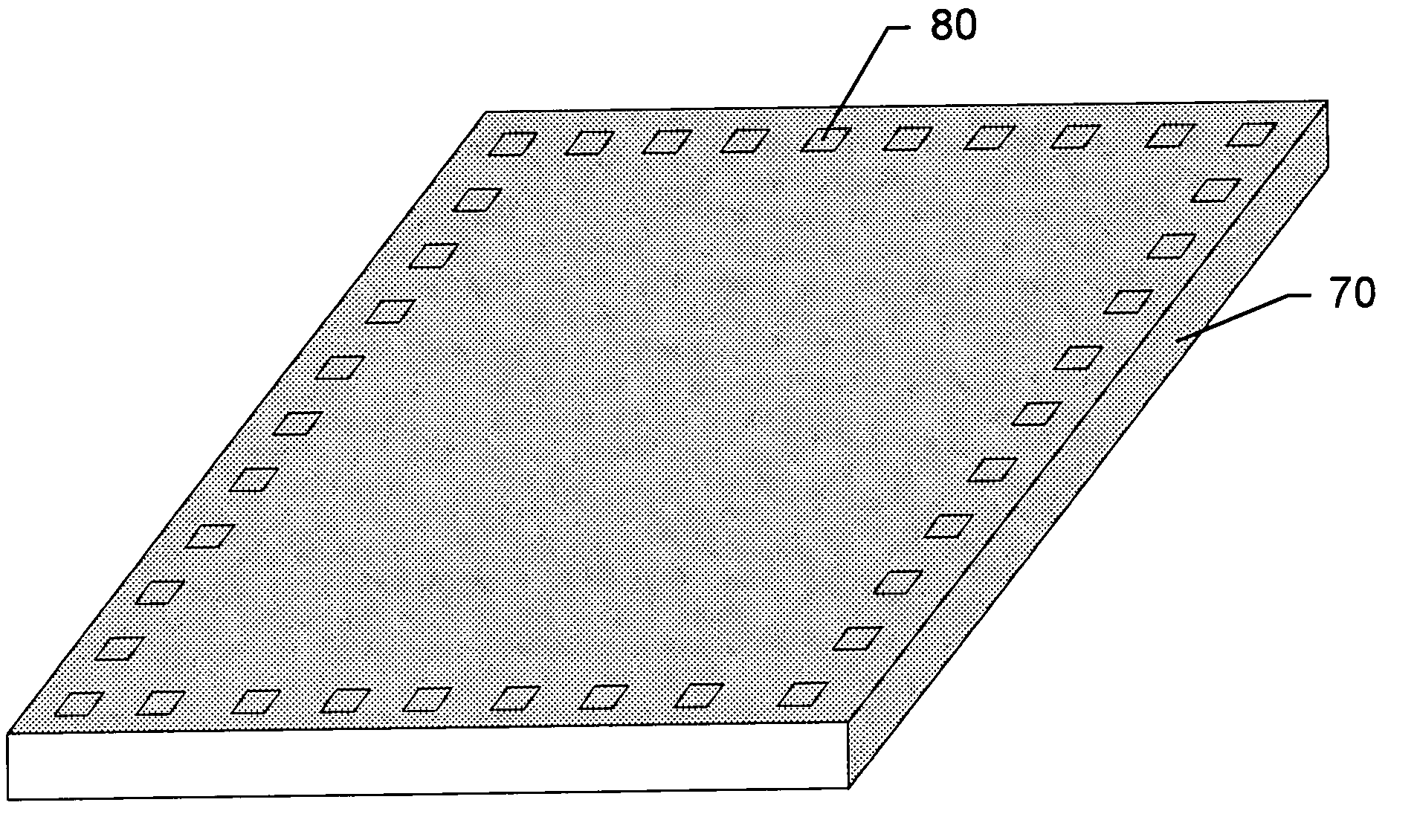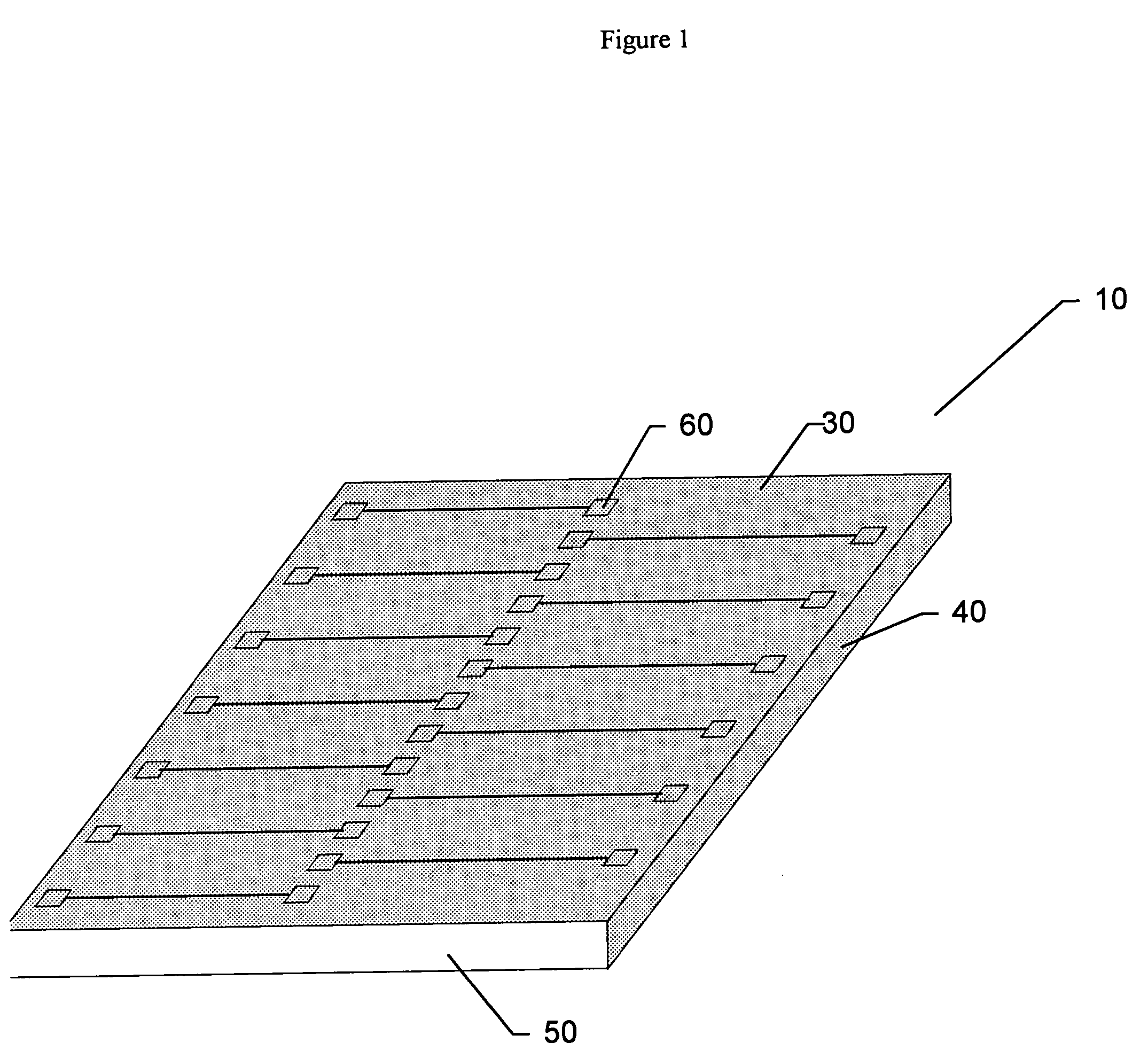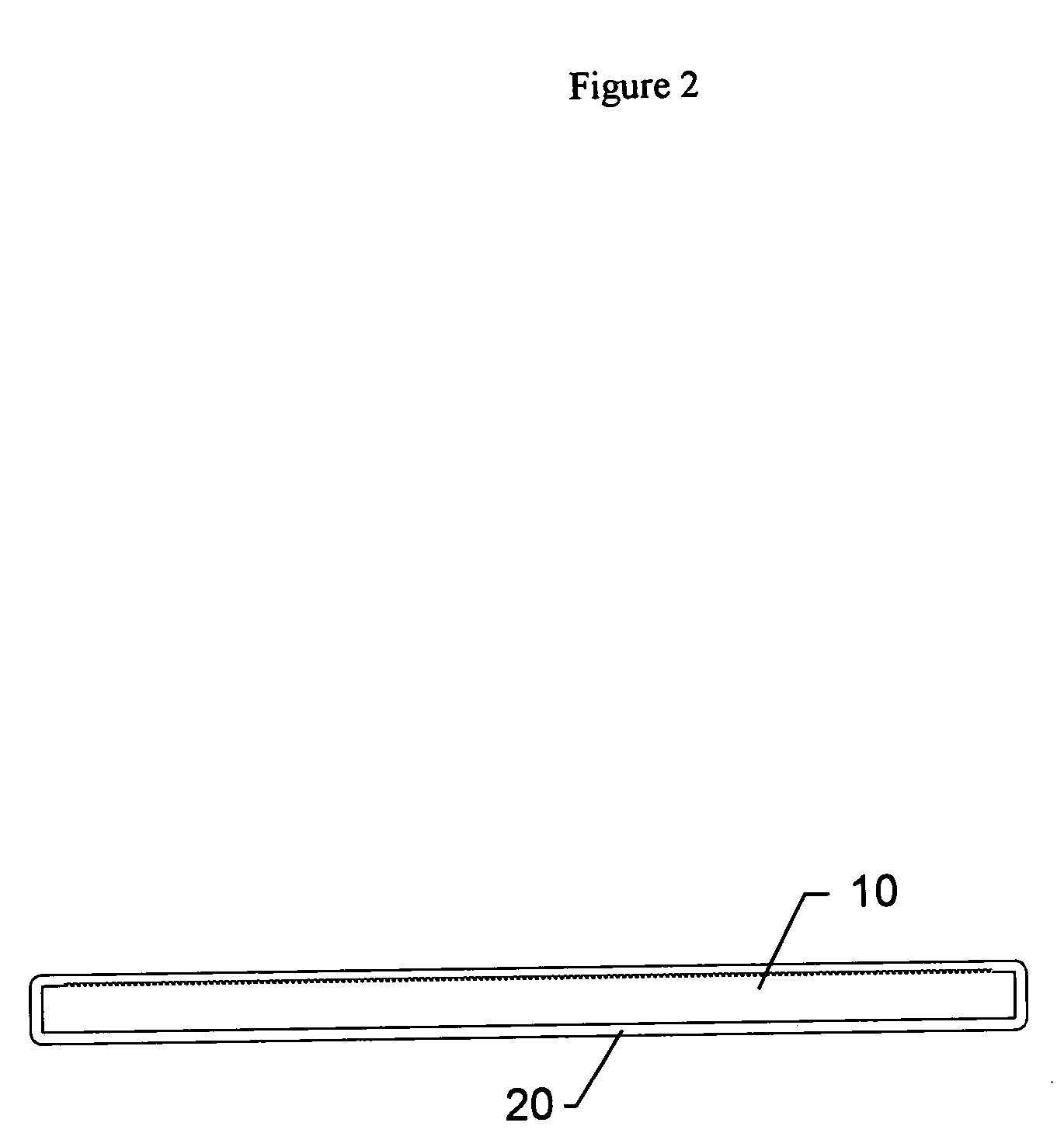Micropede stacked die component assembly
a technology of stacked dies and components, applied in the direction of electrical equipment, semiconductor devices, semiconductor/solid-state device details, etc., can solve the problems of high pin count on the circuit board, large area occupied by interconnected dies, and many wires that are required
- Summary
- Abstract
- Description
- Claims
- Application Information
AI Technical Summary
Benefits of technology
Problems solved by technology
Method used
Image
Examples
Embodiment Construction
[0021] Referring to FIG. 1, semiconductor die 10, with original connection pads 60 have had an insulating layer applied to the top surface, 30 of all of the die while the die are still connected together in a wafer form. A metal layer is deposited and defined using photolithography, to reroute the electrical signals from the original connection pads 60 to new locations at the edge of the die. An additional layer of insulating material is optionally applied above the metal layer, and openings are made in the top layer of insulating material at the relocated pad locations at the edge of the semiconductor die, and optionally at the original pad locations down the center of the top surface of the die.
[0022] Referring to FIG. 2, the semiconductor die, 10, has been thinned by grinding or lapping, and has been singulated from the semiconductor wafer, and said semiconductor die has been coated with a conformal insulating coating 20.
[0023] Referring to FIG. 3, openings have been made in th...
PUM
 Login to View More
Login to View More Abstract
Description
Claims
Application Information
 Login to View More
Login to View More - R&D
- Intellectual Property
- Life Sciences
- Materials
- Tech Scout
- Unparalleled Data Quality
- Higher Quality Content
- 60% Fewer Hallucinations
Browse by: Latest US Patents, China's latest patents, Technical Efficacy Thesaurus, Application Domain, Technology Topic, Popular Technical Reports.
© 2025 PatSnap. All rights reserved.Legal|Privacy policy|Modern Slavery Act Transparency Statement|Sitemap|About US| Contact US: help@patsnap.com



